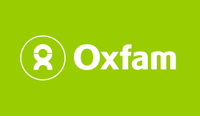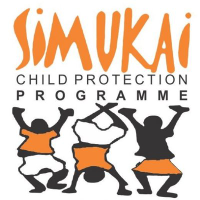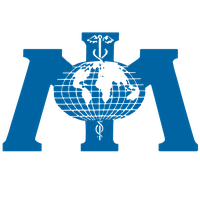Multisectoral Assessment (WASH, Health/SRH, Nutrition, Food security, Livelihoods& climate change and Protection mainstreaming (GBV) – Matabeleland South, Masvingo, Bulawayo, Harare, and Manicaland
Job Description
International Medical Corps is a global, humanitarian, nonprofit organization dedicated to saving lives and relieving suffering through health care training and relief and development programs. Established in 1984 by volunteer doctors and nurses, International Medical Corps is a private, voluntary, nonpolitical, nonsectarian organization. Its mission is to improve the quality of life through health interventions and related activities that build local capacity in underserved communities worldwide. By offering training and health care to local populations and medical assistance to people at the highest risk, and with the flexibility to respond rapidly to emergency and development phases, International Medical Corps rehabilitates devastated health care systems and helps bring them back to self-reliance.
To learn more about us visit: https: https://www.internationalmedicalcorps.org/
Consultancy Title
Multisectoral Assessment (WASH, Health/SRH, Nutrition, Food security, Livelihoods& climate change and Protection mainstreaming (GBV) – Matabeleland South, Masvingo, Bulawayo, Harare, and Manicaland Provinces.
Job Location
• Matabeleland South Province (Gwanda, Umzingwane, Matobo districts)
• Masvingo Province (Mwenezi and Chivi districts)
• Manicaland- Mutare district
• Metropolitan provinces- Harare and Bulawayo
Period of Consultancy
26 November 2024 -28 January 2025 (35 days).
Situational Background
Zimbabwe is currently experiencing the effects of the El Niño season, which has severely impacted the 2023-2024 summer cropping harvests. In May 2024, the President of Zimbabwe declared 2023/2024 crop season as state of disaster and appealed for $2 billion to respond. An estimated population of 6 million are expected to be food insecure in Zimbabwe during the 2024-2025 lean season (January to March). The current El nino induced drought is expected to impact the food and nutrition situation, reducing food access and diversity and thereby the overall quality of people’s diets. The drought will further worsen the food shortages exposing 2.6 million people to water insecurity. Approximately 57% of the rural households in Zimbabwe will be cereal insecure during the peak hunger period (January to March). Manicaland (60%) is projected to have the highest proportion of cereal insecure households, Masvingo 56 % and Matabeleland South (50%). Although to a lesser extent, food insecurity is also a challenge in urban areas. ZimLAC urban 2024 report reviewed 35% are food insecure, translating to 1,732,770 people with households that were headed by women, the less educated, the unemployed and household heads living with a disability mostly affected. District disaggregated data shows that in Matobo district 50%, Gwanda (53%), Umzingwane (50%), Mutare (56%), Mwenezi (54%) households will be cereal insecure at peak hunger period.
According to ZimLAC 2024 Report, national (19%) of rural household were accessing unimproved water sources, Masvingo Province (28%), Matabeleland South (20%) and Manicaland (19%).
The drought is heightening the risk of gender-based violence (GBV) sexual exploitation and abuse.The Drought flash appeal report further asserts that during drought events an increased likelihood of child marriage and exposure to gender-based violence has been recorded. Similarly, the risk of exposure to domestic violence and intimate partner violence is expected to increase because of heightened family tensions caused by crop damage and income losses.
Climate Change projections will exacerbate issues surrounding food security, water, health and nutrition. Climate change effects are being felt in all parts of the world and the poorest and most vulnerable communities will suffer most. Communities that are already vulnerable to hazardous events, whether due to social factors such as poverty, social marginalization, gender barriers, age, or a lack of access and knowledge of how to prepare themselves in the face of extreme hazards, are most at risk. Zimbabwe ranks 159 of 182 countries on the Notre Dame Global Adaptation Index Country (ND). Temperatures in Zimbabwe are projected to continue increasing and national projections of average monthly temperatures show a warming around 2°C by 2080. The current and projected warming trend and increasingly erratic rainfall, coupled with the increasing frequency and intensity of floods, tropical cyclones, droughts, and heatwaves, threaten access to water. Furthermore, climate change is projected to increase malnutrition and food insecurity through reduced nutritional quality of available food, reduced access to a variety of foods for a balanced diet, and an overall lower nutritional status of households; there is also a threat of decreased production of staple foods and spikes in food prices. Climate change also directly affects health and SRH, including extreme heat corresponding with increased rates of stillbirth and pre-term and low birth weight infants, as well as an increase in vector borne diseases due to flooding.
Furthermore, a La Nina event is expected to follow the current El Nino event with the World Meteorological Organization forecasting 60% chance of La Nina conditions during July to September and 70% during August to November. La Nina is expected to bring above average rainfall to Southern Africa, which may lead to floods in some regions.
Duties and Responsibilities
Organizational Background
The International Medical Corps is a global, humanitarian, non-governmental organization dedicated to saving lives and relieving suffering through health and emergency relief programming. During the 2008–09 cholera epidemic, its work in Zimbabwe included health, water, and sanitation interventions for the affected populations. In 2013, in response to food and nutrition insecurity in the country’s southern region, IMC worked under the Amalima consortium, to implement WASH and nutrition activities as part of a U.S. Agency for International Development Food Assistance Program, serving more than 66,000 community households. Currently, International Medical Corps is leading health, nutrition, and WASH activities with the support of USAID/Bureau for Humanitarian Assistance, under the CNFA led Amalima Loko. The program runs from 2020-2025 in the drought-prone, food-insecure districts in Matabeleland, North province. International Medical Corps is also implementing a USAID/ Bureau for Humanitarian Assistance funded project in support of ‘Emergency Intervention to improve water, sanitation, and hygiene (WASH) access in Matabeleland South, Matabeleland North, and Masvingo Provinces and a climate-adaptation-focused project Enhancing Climate adaptation and resilience through an innovative nutrition sensitive agriculture and Water, Sanitation and Hygiene (WASH) intervention in Zimbabwe.
Amidst a decade of economic decline in Zimbabwe, International Medical Corps has delivered quality health/SRH, nutrition and water, sanitation, and hygiene services to vulnerable populations in poor and vulnerable rural communities. The interventions aimed to improve nutrition and reduce the spread of waterborne disease, thereby contributing to reduced morbidity and mortality. In response, International Medical Corps is proposing a comprehensive needs assessment that focuses on WASH, Health/SRH, Nutrition, Resilience, Food security & Livelihoods, Climate Change, and Protection mainstreaming (GBV). The assessment findings will be used to design project interventions in some of the districts in the IPC 3 in Matabeleland South and Masvingo and inform the design of interventions that will respond to communities' needs, alleviate suffering and enhance their adaptive and absorptive capacities to respond to WASH, Health/SRH, food security, Livelihoods and climate-related shock and stressors.
Assessment Objectives
The objective of this assessment is to provide a comprehensive understanding of current needs and gaps in the WASH, Health/SRH, Nutrition, Food security & Livelihoods, the effects of climate change and Protection mainstreaming (GBV) in Matabeleland South, Masvingo, Manicaland, Bulawayo and Harare provinces and how these have been affected by the El Nino phenomenon and how they will likely be affected by the projected La Ninia in the near future.
Specific Objectives
• Specific Objective 1: Assess the functionality of communal water infrastructure, WASH governance structures, current WASH practices identifying positive and negative coping mechanisms adopted by communities in light of water scarcity.
• Specific Objective 2: Understand gaps in hygiene and sanitation promotion and identify barriers to latrine construction and hygiene enabling facilities.
• Specific Objective 3: Understand the gaps and opportunities in the primary healthcare system with a particular emphasis on the prevalence and burden of infectious disease and investigate epidemiological trends. Assess district epidemic preparedness to common disease outbreaks anticipated in 2025.
• Specific objective 4: Understand the needs, available services, and gaps related to SRH information and services including maternal and newborn health, family planning, clinical management of rape/intimate partner violence, and STI/HIV diagnosis and treatment including prevention of mother to child transmission (PMTCT).
• Specific Objective 5: To evaluate and map existing health services available for survivors of gender-based violence (GBV), specifically concentrating on the clinical management of rape and intimate partner violence.
• Specific objective 6: To determine the effects of climate related shocks experienced by communities on household Food security and Livelihoods, to inform relevant food security, livelihoods and climate adaptation interventions with particular focus on cash and market-based programming, and agriculture production.
• Specific Objective 7: To determine the effects of climate elements and El Nino Phenomenon on WASH, nutrition and health to inform relevant integrated WASH, nutrition, health food security and livelihoods interventions.
• Specific objective 8. To assess the nutrition status of children 6-23 months and gaps in nutrition programs to inform relevant climate smart agriculture and nutrition sensitive interventions.
• Specific Objective 9: To systematically identify and document partners engaged in various activities across specific locations, detailing their roles, timelines, and geographic focus.
Methodology
The consultant is expected to collect primary data from key stakeholders in Matabeleland South Province's target areas (Matobo, Gwanda and Umzingwane district), Masvingo Province (Mwenezi and Chivi districts) Manicaland (Mutare), Harare and Bulawayo urban using both qualitative and quantitative methods to collect this data. He/she will also review existing secondary literature to obtain information. The consultant will finalize the key questions for this work and develop a study proposal that includes the following: individual/groups to be consulted; size or scope of sampling frame; sample selection method and data collection methods; data analysis at the district level, and health data be specific per health facility. Methodologies should incorporate gender mainstreaming and protection issues.
The consultant is expected to submit a work plan within the first 3 days of the assignment and confirm the study methodology, tools, and sample size with the MEAL Manager and IMC Country Director. International Medical Corps will have the sole responsibility for the hiring and payment of enumerators, while the consultant will be responsible for training and supervision of enumerators during the assessment. IMC will facilitate all logistical arrangements for the assessment, including transport to the field and enumerator accommodation. The consultant will work with IMC MEAL and TU team members to derive the best possible valid and relevant data collection tools to be used in the assessment. International Medical Corps will review and approve the tools and support the selection of communities/clusters to be selected for assessment. IMC focal points for the assessment will organize introductions with stakeholders where required, assist in mobilizing participation and the provision of feedback to participants.
Expected Outputs / Deliverables
• Inception report (including specific details on methodology, research questions, tools and schedules for data collection, ethical considerations, data analysis, storage, and management plans).
• A one-pager on the benefits and limitations of the assessment methodology used in the selected Provinces.
• Raw dataset and cleaned dataset in CSV (quantitative) and Word or Excel (qualitative) including all primary data collected, and a list of all groups/people consulted or interviewed.
• Provide Geo-Positioning system (GPS) coordinates for all study sites (including all households interviewed, should there be any).
• Needs assessment narrative report (including maps, pictures, tables, graphs) detailing findings and recommendations, including secondary data review.
Roles and Responsibilities
International Medical Corps Team. The MEAL Manager with the sectoral leads will support the supervision of the data collection processes, data analysis, and report writing. The Country Director will lead the process of sharing findings with stakeholders, and finally, the IMC team will use the findings to inform future proposal development.
Qualifications and Experience
Required Expertise
The expert or consultancy firm must have at minimum a Master's degree in Public Health, Environmental Health, Nutrition, Food security, livelihoods, climate adaptation or a related disciplines with at least seven (7) years of work experience in or with MoHCC and/UN system and NGOs, and proven experience in qualitative and quantitative data collection and analysis. The expert must have a strong technical team to support the thematic areas and the team must have a Medical doctor in the team. The expert will also have demonstrated experience in research and development work related to program assessments, evaluations, or operational research. The consultant should have:
o Education at a Masters degree level is mandatory; PhD is an advantage.
o Proven experience in conducting multisectoral assessments in all the specified sectors
o Experience using mixed methods in data collection.
o Strong command of English and knowledge of local languages (i.e., Shona and Ndebele).
o Experience in the use of mobile data collection and mapping of GPS Coordinates.
o Commitment to and understanding of internationally recognized child protection values and principles and a commitment to abide by the International Medical Corps Prevention of Sexual Exploitation and Abuse policy.
How to Apply
Application Requirements
All expressions of interest should include:
• A technical proposal (maximum of 10 pages), highlighting the scope of work, experience, and qualifications, as well as a brief explanation on understanding the Terms of Reference. An analysis framework and evaluation plan should also accompany this.
•Financial proposal in US dollars (US$): the financial proposal should provide cost estimates for services rendered.
•Proof of previous work done, in the form of hard copies of at least three (3) reports produced for previous work done from maximum the last 7 years.
• The consultant should be prepared to make a presentation to International Medical Corps and stakeholders on how they propose to carry out the assessment. The expert is to attach CVs of all team members that will participate in the assessment.
This position is open to Zimbabwe local consultants only and aapplicants are requested to submit the aforementioned documents through e-mail to [email protected] with the email heading ‘Multisectorial Assessment Consultant’ by the 20th of November 2024. Only shortlisted candidates will be contacted.
Similar Listings

Baseline Assessment for the project, “Integrated Emergency Response for El Niño Drought Affected Communities in Zimbabwe,
Oxfam — Harare

CALL FOR EXPRESSION OF INTEREST FOR CONSULTANCY SERVICES FOR THE DESIGN AND IMPLEMENTATION OF A CAPACITY DEVELOPMENT PROGRAM FOR SIMUKAI CHILD PROTECTION PROGRAMME
Simukai Child Protection Program — Harare

Terms Of Reference
Oxfam — Harare

Terms Of Reference
Oxfam — Harare

Location: Harare
Company: International Medical Corps
Expiry Date: 2024-11-20 00:00:00
